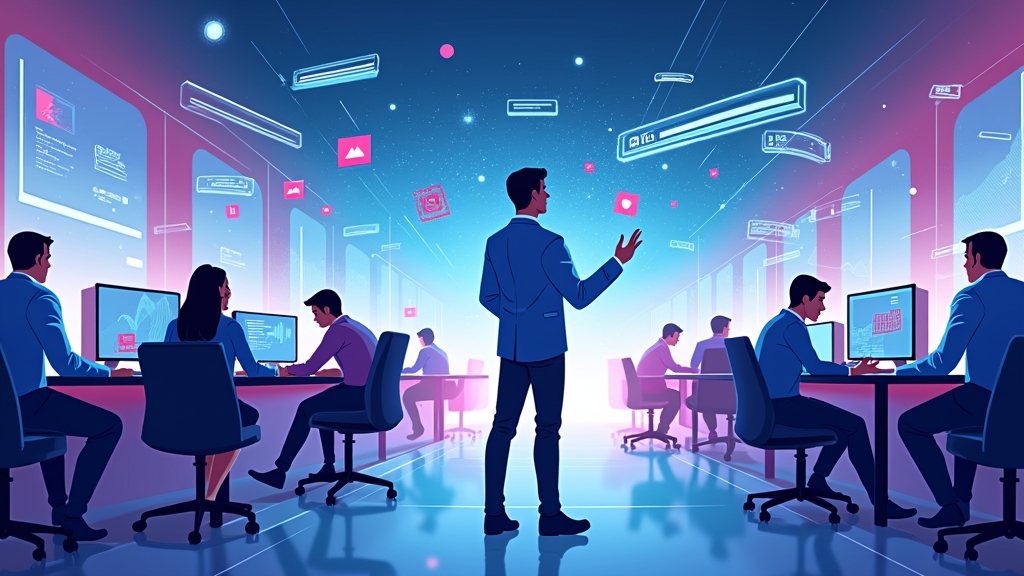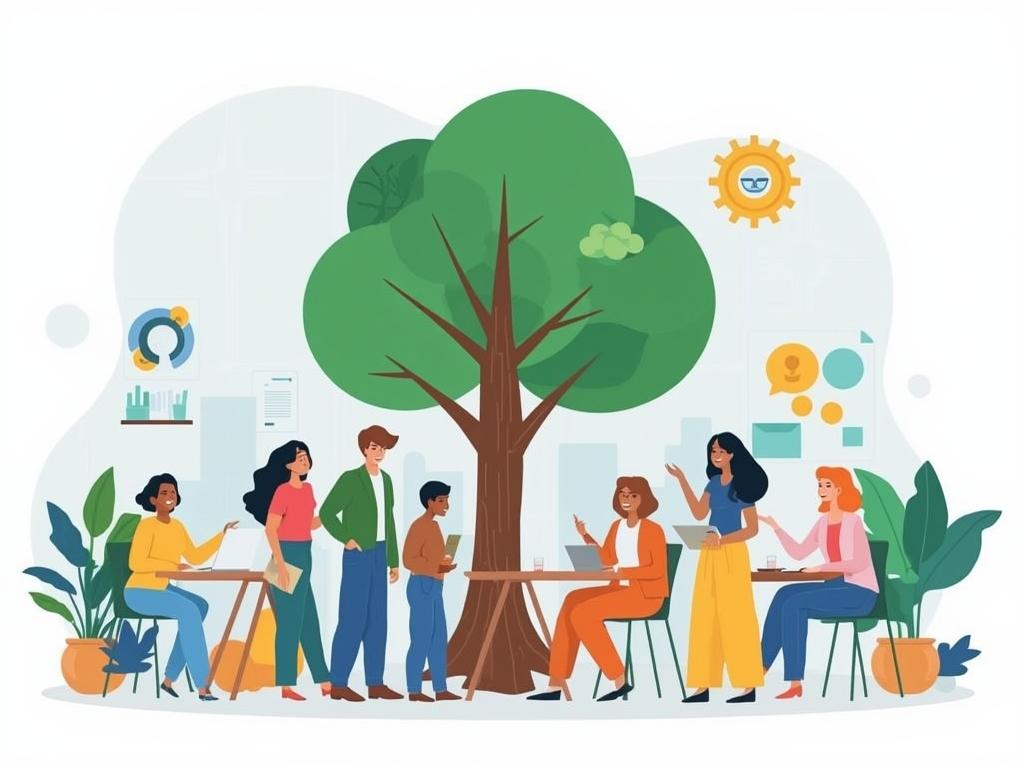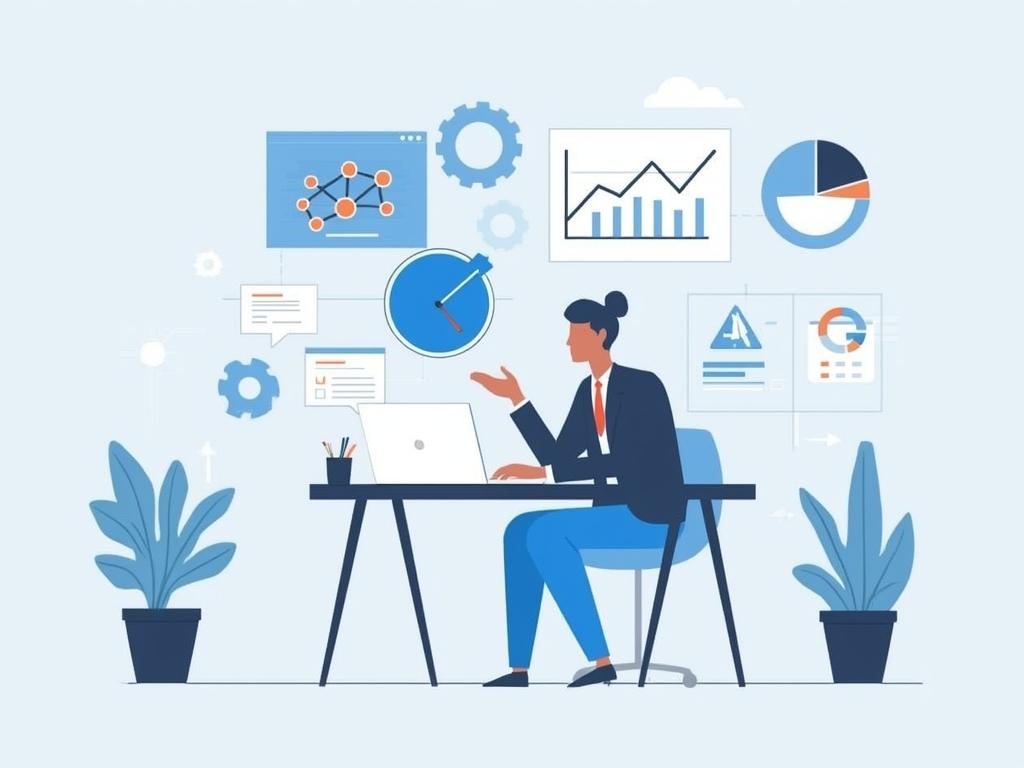The Attention Economy and Its Influence on the Labor Market
Imagine a world where your ability to concentrate on a single task for more than 20 minutes is worth more than years of experience on a CV. Sound like an exaggeration? The truth is that, in the age of fast-paced information, attention has become a scarce resource - and this is radically transforming the job market. Companies no longer assess only technical skills; they now measure your ability to stay focused amid a sea of distractions.
But why is that? We live in the so-called "attention economy"This is a concept coined by psychologist Herbert A. Simon in the 1970s, but which has gained momentum with the explosion of the internet and social networks. Platforms like Instagram, TikTok and YouTube compete for every second of our time, and this directly affects our productivity. If multitasking used to be a compliment, today it's a problem.
In this article, we'll explore how this change is reshaping hiring criteria, performance evaluation and even the way we prepare for our professional future. You'll understand why companies like Google and Microsoft are investing in training for "deep work" (deep work) and how you can adapt to this new reality.
What Is the Attention Economy and Why Does It Affect the Labor Market?
The attention economy is a model in which the most valuable asset is not money, but people's time and concentration. With the internet, we've never had so much access to information, but we've also never been so easily distracted. A Microsoft study showed that the average human attention span has fallen from 12 seconds in 2000 to just 8 seconds in 2023 - less than that of a goldfish!
In the corporate environment, this translates into billion-dollar losses. According to Gallupdistracted employees cost companies around $600 billion per year in lost productivity. No wonder recruiters are looking for professionals who can withstand constant interruptions and stay focused on complex tasks.
Advertising
But how does this affect you? If before a resume full of certifications guaranteed a good job, today soft skills such as mental discipline and time management are differentials. Companies like Apple It is Amazon already include concentration tests in their selection processes.
And what can you do to stand out? Develop mindfulnessblock out digital distractions and practice "monotasking" (doing one thing at a time) are valuable strategies. After all, in a world where everyone is scattered, those who can concentrate become indispensable.
How Ability to Focus Became a Hiring Criterion
Have you ever been in an interview where you were asked about your ability to manage interruptions? If not, the chances are that it will happen soon. Large companies are reviewing their recruitment processes to identify candidates who not only know how to do it, but can do it without being distracted.
A clear example is IBMwhich introduced resistance to distraction in their group dynamics. Candidates are placed in environments with a variety of stimuli (notifications, side conversations, noise) and have to solve complex problems. Those who perform under pressure stand out.
And it's not just the tech giants. Traditional sectors such as finance and health are also adopting similar methods. Banks such as Itaú already use cognitive tests which measure not only logical reasoning, but also the ability to maintain attention in repetitive tasks - a crucial skill for avoiding errors in financial transactions.
But how can you prepare? Invest in concentration trainingsuch as those offered by platforms like Coursera It is Udemy. Also, practice techniques such as Pomodoro Techniquewhich divides work into 25-minute chunks with short breaks, increasing productivity.
Performance Evaluation in the Age of Distractions: What's Changed?
Whereas before an employee was judged on how many tasks they could perform simultaneously, today the criterion is how well it performs one task at a time. The change is clear: quality over quantity. Companies like Spotify have already abandoned traditional productivity metrics and adopted systems that value profound resultsnot just constant activity.
A study by Harvard Business Review revealed that employees who practice "deep work" (focused work without distractions) are More efficient 50% than those who try to multitask. That's why managers are reviewing performance indicators, replacing metrics such as "hours worked" per "real impact of the work".
And how does this apply on a daily basis? Instead of filling out activity reports, professionals now need to demonstrate how your work generated value. For example, a designer is no longer judged by how many layouts he or she has produced, but by how many of them actually drive sales or engagement.
To adapt, start documenting your tangible results. Use tools such as Trello or Asana to organize goals and clearly show their impact. Remember: in the new job market, focus generates results, and results generate recognition.
The Emergence of New Professions Centered on Care Management
With the appreciation of focus, new careers are emerging - and some of them didn't even exist five years ago. Professionals such as "productivity managers" It is "attention trainers" are on the rise, helping companies and individuals to combat dispersion.

An interesting case is that of Attention Insight, a startup that uses artificial intelligence to analyze attention patterns in teams. They help companies reorganize workflows, eliminating points of distraction. Another example is "neurocoaches"These are experts in neuroscience who teach techniques to improve concentration.
And where do you fit in? If you have an analytical profile, you can explore areas such as UX (User Experience) focused on reducing distractions. Platforms such as Nielsen Norman Group offer courses on how to create interfaces that minimize cognitive overload.
For those who prefer to work independently, one option is to become a productivity consultant. Many self-employed professionals, such as lawyers and doctors, are seeking help to better manage their time in the midst of digital demands.
Tools and Techniques to Improve Focus at Work
Knowing that focus is important is one thing; putting it into practice is another. Fortunately, there are a number of proven tools and methods to help. Let's explore some of the most effective.
Distraction blocking appssuch as Freedom It is RescueTimeIn addition, the company has made it possible to restrict access to social networks and non-work-related sites during specific hours. Companies such as Shopify encourage their employees to use them.
Another powerful technique is "time blocking"This is a method where you schedule blocks of time for each task, avoiding overlaps. Elon Musk and Bill Gates are fans of this method. Tools such as Google Calendar facilitate its implementation.
For those who suffer from too many meetings, the "5 questions rule" can help: before scheduling a meeting, ask yourself if it is really necessary, if it can be solved by e-mail, and if all the participants are essential. Companies like Zapier have reduced meetings by 40% by adopting this practice.
Finally, don't underestimate the power of physical environment. Offices with natural light, quiet spaces and plants increase concentration. A World Economic Forum recommends that companies rethink their layouts to favor deep work.
The Future of Work: Will AI Solve Our Attention Problem?
With the advance of artificial intelligence, many believe that machines will take over tasks that require focus, freeing up humans for creative activities. But is it really that simple?
AI is already being used to filter out distractions. Tools such as Grammarly help you stay focused on your writing, while virtual assistants like x.ai schedule appointments automatically. However, the risk is that we become dependents of these solutions, losing even more of our natural ability to concentrate.
On the other hand, AI can also increase distractions. Social media algorithms are designed to capture our attention, and without discipline, we can fall into endless cycles of passive content consumption.
The balance lies in using technology to our advantagenot as a crutch. Automate repetitive tasks, but make time for train your brain to concentrate without external help. After all, in the future, the difference between mediocre and exceptional professionals will still be the ability to think deeply.
How to Prepare for a Market that Values Focus
Now that you understand the importance of attention in the job market, how can you prepare for this reality? Here are some practical actions:
1. Invest in self-knowledge: Run tests like MindTools to identify your points of distraction and work on them.
2. Create focus rituals: Set fixed times to check emails and social networks, avoiding the temptation to "just have a quick look".
3. Practice meditation: Applications such as Headspace help train the mind to maintain attention.
4. Seek feedbackAsk colleagues and managers to assess your ability to stay focused on long projects.
The market is changing, and whoever adapts first will reap the rewards. Are you ready to turn your attention into your greatest competitive advantage?
So, what will be your next step in mastering the attention economy? Share in the comments or start applying one of the techniques mentioned today. The future belongs to those who can focus on it.



